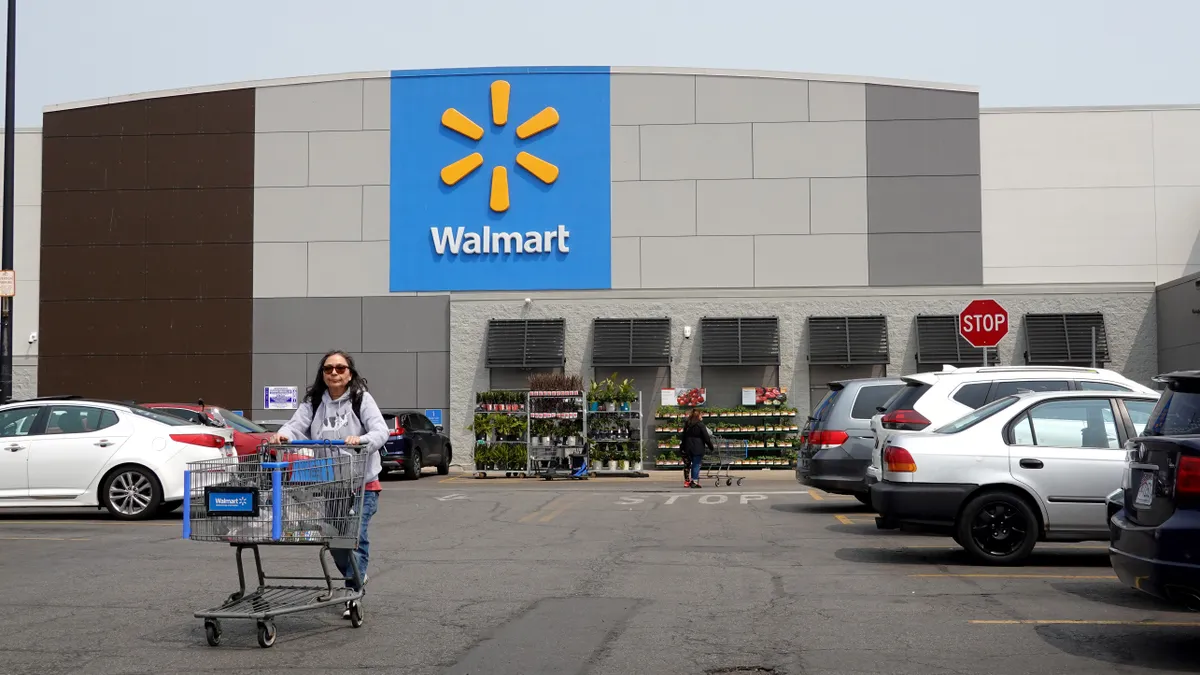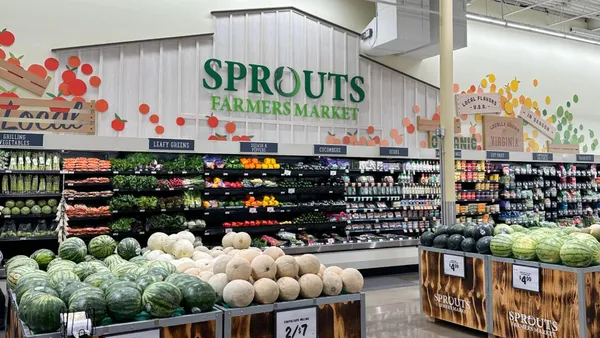Dive Brief:
- Walmart’s U.S. comparable-store sales excluding fuel rose 5.3% during the third quarter of fiscal year 2025, driven by transactions and unit volumes both online and in-store, the retailer reported Tuesday morning.
- The retailer’s U.S. grocery segment saw mid-single-digit growth, with food units reaching their highest level in four years and private brand penetration increasing by just under 1 percentage point.
- While Walmart continues to cater to all income cohorts and saw share gains in each, households that earn more than $100,000 made up 75% of Walmart’s share gains in the U.S. during Q3, CFO John David Rainey said during the earnings call on Tuesday.
Dive Insight:
Speaking during the earnings call, Walmart President and CEO Doug McMillon credited the improvement in comp sales growth, which was up from 4.2% in Q2, to strong transaction counts and unit volumes across segments and increased market share in grocery and general merchandise.
Walmart has continued to see ongoing growth in its grocery category. The most recent quarter’s growth was fueled by increased transactions, units and share gains. Pantry products, in particular, helped boost “broad-based” food sales, according to the company’s earnings presentation.
As Walmart leans into its position on value and convenience options, grocery prices remain a key focus for the retailer. The grocery department accounted for half of the roughly 6,000 price reductions Walmart implemented in Q3, according to Rainey.
The retailer also saw net sales increase by 5% and e-commerce rise by 22% in Q3. E-commerce growth reflects a nearly 50% increase in store-fulfilled delivery and 42% growth in marketplace sales, according to Walmart’s earnings presentation. Rainey noted that Walmart has recorded 12 consecutive months of deliveries above $2 billion.
Walmart’s earnings surpassed Wall Street’s expectations, with adjusted earnings per share coming out to 58 cents compared to the predicted 53 cents and revenue reaching $169.6 billion versus the expected $167.7 billion, CNBC reported.













